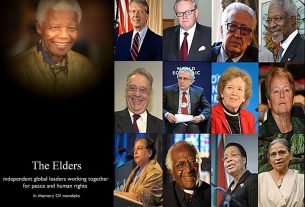Date: November 11, 2024
In a recent development in the ongoing conflict between Israel and Hamas, Qatar has announced the suspension of its mediation efforts for a cease-fire in Gaza. The Qatari government, which had played a key role in brokering temporary cease-fires and humanitarian aid initiatives in the region, cited a lack of “willingness and seriousness” from both parties in moving toward a lasting resolution. However, Qatar has left the door open for resuming its mediation efforts, contingent upon the Israeli and Palestinian leadership demonstrating a renewed commitment to negotiations.
At the same time, Palestinian President Mahmoud Abbas expressed his readiness to engage in peace talks during a recent call with former U.S. President Donald Trump. Abbas’s remarks suggest a shift in tone from earlier positions, offering a glimmer of hope for progress amid the ongoing hostilities in Gaza and the West Bank.
Qatar’s Role in Gaza Mediation
Qatar has long positioned itself as a key player in Middle East diplomacy, often leveraging its wealth and geopolitical relationships to act as a mediator between warring factions in the Arab world. In the case of the Israel-Hamas conflict, Qatar has been particularly active in facilitating humanitarian aid to Gaza and supporting cease-fire initiatives, particularly during periods of intense violence.
Earlier in 2024, Qatar played a pivotal role in negotiating temporary cease-fires between Israel and Hamas, seeking to alleviate the humanitarian crisis in Gaza and avoid further escalation. Qatar’s mediation efforts were part of broader regional and international attempts to stabilize the situation, including pressure from the United Nations and other Middle Eastern countries.
However, the Qatari government stated that its decision to suspend mediation was prompted by a lack of genuine engagement from both the Israeli government and Hamas. Qatar’s Foreign Ministry issued a statement emphasizing that the suspension would remain in effect unless there was a demonstrable commitment from both sides to negotiate and address the underlying issues of the conflict.
The suspension is seen as a blow to efforts aimed at achieving a longer-term ceasefire, but it also underscores the challenges faced by mediators in a conflict marked by deep political and ideological divides.
President Mahmoud Abbas’s Message to Donald Trump
In a related development, Palestinian President Mahmoud Abbas reached out to former U.S. President Donald Trump, expressing his willingness to work toward peace. According to sources close to the Palestinian Authority, Abbas indicated that while the current situation in Gaza remains dire, he was open to engaging in talks with both Israel and the international community in search of a sustainable resolution.
Abbas’s message to Trump represents a rare moment of diplomacy in a time of heightened tensions. The Palestinian president has long sought international recognition of Palestine as an independent state, while criticizing Israeli settlement expansion in the West Bank and the Israeli blockade of Gaza. However, his willingness to engage in peace talks signals a potential opening for dialogue, even amid ongoing violence.
The conversation between Abbas and Trump is notable given Trump’s controversial role in the region during his time in office. Trump’s administration was marked by its strong support for Israeli policies, including the recognition of Jerusalem as the capital of Israel and the U.S. embassy’s relocation to the city. This stance alienated many Palestinian leaders, but Abbas’s willingness to engage with Trump could be seen as a pragmatic move, potentially driven by the escalating crisis in Gaza and the need for a resolution to the conflict.
Context and Implications for Peace Efforts
The suspension of Qatar’s mediation efforts and the recent diplomatic overture from Abbas come at a critical moment. The conflict in Gaza, which has seen increased violence and civilian casualties, has prompted renewed calls for a ceasefire and a return to the negotiating table. Humanitarian concerns, particularly the dire conditions in Gaza, have intensified, with international organizations warning of an impending crisis if the conflict continues unchecked.
Qatar’s decision to pause its mediation efforts highlights the complexities of facilitating peace in a region fraught with distrust and competing interests. While Qatar has been a vocal advocate for Palestinian rights, it also faces pressure from regional partners, including Israel’s allies in the Gulf, to maintain neutrality and encourage constructive dialogue from both sides.
Meanwhile, Abbas’s offer to work toward peace comes as the Palestinian Authority faces growing challenges in its governance and legitimacy. Hamas, which controls Gaza, has often been at odds with Abbas’s administration in the West Bank, complicating efforts for a unified Palestinian stance in negotiations with Israel. Abbas’s message to Trump could signal an attempt to strengthen the Palestinian position in the face of internal divisions and external pressures, but it remains uncertain whether this will lead to substantive progress in the peace process.
Outlook for Future Talks
The future of the Gaza cease-fire and the broader peace process remains uncertain. Despite Qatar’s suspension of its mediation, the international community continues to push for a resolution to the conflict. The United Nations, the European Union, and regional powers like Egypt and Jordan have all expressed support for renewed peace talks, but the path forward remains fraught with obstacles.
The involvement of influential figures such as Abbas and Trump suggests that the conflict is far from reaching a resolution, but the willingness of key leaders to engage in dialogue offers a glimmer of hope. As tensions persist, the international community will likely continue to press for de-escalation and a return to negotiations, even if it means navigating complex diplomatic channels and competing interests in the region.
References:
- Qatar News Agency (Qatar Foreign Ministry Statement, November 10, 2024)
- Palestinian Authority Official Statements (Abbas-Trump Conversation)
- Reuters (November 10, 2024) – “Qatar Suspends Gaza Cease-fire Mediation Amid Lack of Progress”
- Al Jazeera (November 10, 2024) – “Abbas Willing to Engage in Peace Talks Amid Gaza Crisis”
- United Nations Press Release (November 2024) – “UN Calls for Cease-fire and Resumption of Middle East Peace Talks”



